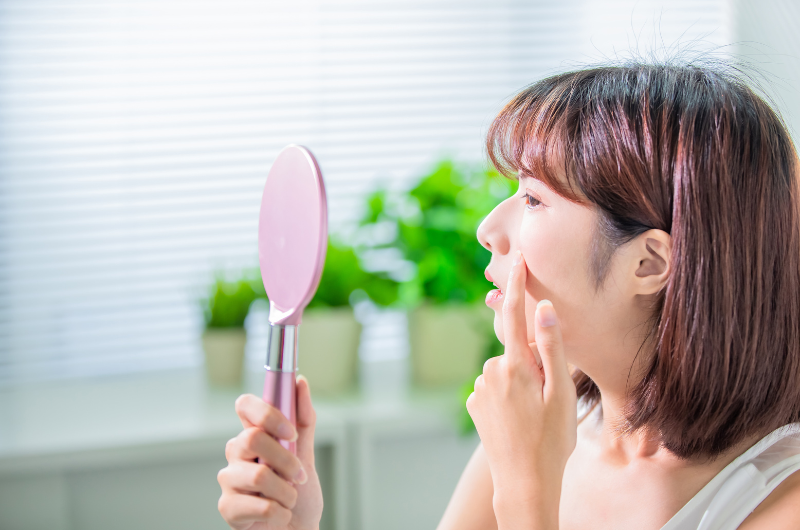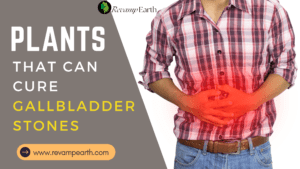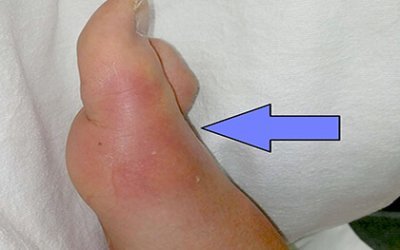Easy Ways To Moisturize Oily Skin At Home

Getting clear, healthy skin is something we all want, but if your skin is oily, it can be a bit tricky. This blog is here to help you understand why your skin gets oily, what problems it can cause, and simple ways to take care of it at home. We’ll also discuss some natural moisturizers that work great for oily skin.
Understanding Oily Skin, Why it Happens and What Can Go Wrong:
When your skin makes too much oil, it can be because of your family history, hormones, or things around you. Oily skin happens when our skin produces too much oil, which is also called sebum. There are a few reasons why this can occur:
Genetics: Sometimes, oily skin runs in families. If your parents or siblings have oily skin, you might too.
Hormones: Changes in hormones, especially during teenage years, can lead to increased oil production. That’s why many teenagers often experience oily skin and acne.
Environment: Living in a humid or hot climate can stimulate your skin to make more oil. Also, using harsh skincare products or washing your face too much can strip away natural oils, causing your skin to produce even more to compensate.
Too much oil can make your pores big, cause acne, and make your skin look shiny. It can also lead to blocked pores. Oily skin can bring about a few complications that might bother you. Here are some common issues:
Acne/pimples Breakouts: Excess oil can clog your pores, leading to the formation of pimples and acne. This happens when the oil mixes with dead skin cells and blocks the hair follicles. Know about the best remedies for pimples/ Acne.
Enlarged Pores: Oily skin can make your pores appear larger. When they get clogged with oil and debris, they may stretch out and become more noticeable.
Blackheads and Whiteheads: The extra oil can combine with dead skin cells and form blackheads (open pores) or whiteheads (closed pores), creating small, dark spots or white bumps on your skin.
Shiny Skin: Oily skin often looks shiny, especially in the “T-zone” (forehead, nose, and chin), making your skin appear greasier than you might prefer.
Inflammation: Oily skin may be more prone to inflammation, causing redness and irritation. This can make your skin feel sensitive and uncomfortable.
Easy Ways to Take Care of Oily Skin:
To keep oily skin under control, you need to do a few simple things. First, wash your face regularly with a gentle cleanser. Use products that won’t clog your pores and exfoliate your skin now and then. Second, drink enough water. It might sound weird, but well-hydrated skin makes less oil. Lastly, eat healthy foods with lots of fruits and veggies to keep your skin happy. A brief management strategy is mentioned below.
Gentle Cleansing: Wash your face regularly with a mild, gentle cleanser. Avoid harsh soaps or scrubbing too hard, as this can stimulate more oil production.
Non-Comedogenic Products: Use skincare and makeup products labeled as “non-comedogenic,” meaning they won’t clog your pores. This helps prevent acne and blackheads.
Regular Exfoliation: Exfoliate your skin a few times a week to remove dead skin cells and prevent clogged pores. Choose a gentle exfoliator suitable for your skin type.
Stay Hydrated: Contrary to belief, keeping your skin well-hydrated helps regulate oil production. Drink enough water to maintain overall skin health.
Balanced Diet: Eat a balanced diet with plenty of fruits and vegetables. Foods rich in antioxidants can contribute to healthy skin.
Choose Oil-Free Products: Opt for oil-free or water-based moisturizers to hydrate your skin without adding extra oil.
Use Blotting Papers: Keep blotting papers handy to absorb excess oil during the day without removing your makeup.
Sun Protection: Always use sunscreen with at least SPF 30 to protect your skin from the harmful effects of the sun. Look for oil-free or gel-based sunscreens.

Home Remedies for Oily Skin – DIY Tricks:
Even if your skin is oily, it still needs some hydration. Use light, natural moisturizers that won’t make your skin oilier. Aloe vera, cucumber extract, and hyaluronic acid are good choices. They not only hydrate your skin but also make it feel better and more elastic. Here are some best home remedies for oily skin.
Lemon and Honey Mask: Mix lemon juice and honey, put it on your face for 15 minutes, and wash it off for a fresh feeling.
Oatmeal and Aloe Vera Scrub: Mix oatmeal with aloe vera gel for a gentle scrub that makes your skin feel good.
Green Tea Toner: Use cooled green tea as a toner to control oil and make your skin happy.
Aloe Vera Gel: Aloe vera has soothing properties and can help regulate oil production. Apply pure aloe vera gel to your face and leave it on for 15-20 minutes before washing it off. You can make juice from aloe vera leaf by grinding the pulp or you can go for aloe vera gel (for external use) present in the market. Know about the best aloe vera gel present in the market. Know about other aloe vera benefits.
Cucumber Mask: Grate or blend cucumber and apply the pulp as a mask. Cucumber has a cooling effect and helps in controlling oil while hydrating the skin.
Tomato Mask: Blend or mash a ripe tomato and apply it to your face. The natural acids in tomatoes help control oil and provide a refreshing feel.
Remember to patch-test any new ingredient to ensure you don’t have an adverse reaction. Consistency is key when using home remedies, so incorporate them into your skincare routine regularly for the best results.
References
- Dawnielle C. Endly, DO, and Richard A. Miller, DO. (2017) Oily Skin: A Review of Treatment Options. The Journal of Clinical and Aesthetic Dermatology. View
- Robert Arbuckle, Mark J Atkinson, Marci Clark, Linda Abetz, Jan Lohs, Ilka Kuhagen, Jane Harness, Zoe Draelos, Diane Thiboutot, Ulrike Blume-Peytavi, and Kati Copley-Merriman. (2008) Patient experiences with oily skin: The qualitative development of content for two new patient-reported outcome questionnaires. National Institute of Health. View
- H.K.Bakhru (1992) Herbs That Heal: Natural Remedies for Good Health. Orient Paperbacks. Delhi, India.
- T.V.Sairam (1999) Home Remedies Vol-II: A Handbook of Herbal Cures for Common Ailments. Penguin Books India.
Dos
Do Cleanse Regularly: Wash your face twice a day with a gentle, oil-free cleanser to remove excess oil and impurities.
Do Use Non-Comedogenic Products: Opt for skincare and makeup products labeled as non-comedogenic to prevent clogged pores.
Do Exfoliate Regularly: Use a mild exfoliator a few times a week to remove dead skin cells and prevent clogged pores.
Do Stay Hydrated: Drink plenty of water to maintain overall skin health. Well-hydrated skin is less likely to produce excess oil.
Do Use Oil-Free Moisturizers: Choose lightweight, oil-free moisturizers to hydrate your skin without adding extra oil.
Do Use Sunscreen: Protect your skin from the sun by applying a broad-spectrum sunscreen with at least SPF 30. Look for oil-free formulations.
Do Blot Excess Oil: Keep blotting papers handy to absorb excess oil during the day without disturbing your makeup.
Do Choose Gel-Based Products: Gel-based products, including cleansers and moisturizers, can be beneficial for oily skin as they are light and less likely to clog pores.
Don’ts
Don’t Use Harsh Soaps: Avoid harsh soaps or cleansers, as they can strip away natural oils, causing your skin to produce even more oil.
Don’t Skip Moisturizing: Even oily skin needs hydration. Skipping moisturizer can trigger more oil production as the skin tries to compensate for the lack of moisture.
Don’t Over-Exfoliate: While exfoliation is beneficial, overdoing it can strip away too much oil, leading to increased oil production. Stick to a moderate exfoliation routine.
Don’t Touch Your Face Frequently: Touching your face can transfer oil, dirt, and bacteria, potentially leading to breakouts. Keep your hands away from your face.
Don’t Use Heavy, Oil-Based Products: Avoid heavy creams or oil-based products, as they can make oily skin worse. Stick to lighter formulations.
Don’t Overuse Makeup: Applying too much makeup can clog pores and worsen oily skin. Use makeup sparingly and choose oil-free options.
Don’t Forget to Remove Makeup: Always remove your makeup before going to bed to prevent clogged pores and breakouts.
Send Us A Message
FAQs
- Oily skin is caused by overactive sebaceous glands that produce excess oil (sebum). Factors such as genetics, hormonal changes, and certain medications can contribute to the condition.
- To control oily skin, wash your face twice a day with a gentle cleanser, use oil-free or mattifying moisturizers and herbs that can moisturize your skin, and apply oil-absorbing products such as blotting papers or powder. Regular exfoliation and using non-comedogenic makeup can also help.
- Yes, stress can impact oily skin. Stress triggers hormonal changes that may increase oil production, leading to breakouts and excess shine. Practicing stress-reducing techniques like meditation and exercise can help manage skin concerns.
- Yes, moisturizing is important even for oily skin. Look for lightweight, oil-free, or gel-based moisturizers that provide hydration without clogging pores. Moisturizing helps maintain skin balance and prevents excess oil production.














